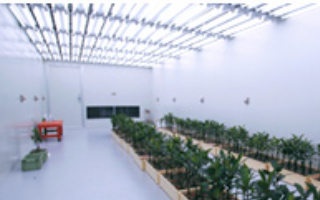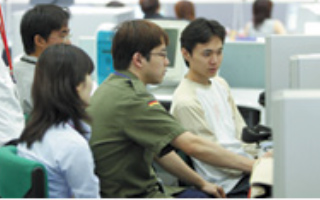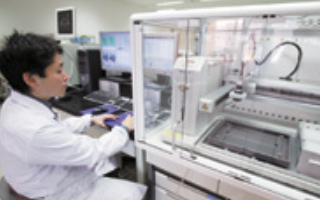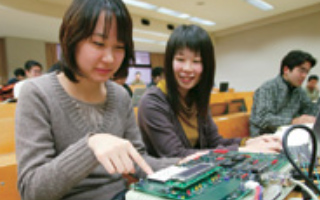- Top Page
- About KARI_Mission and Objectives

About KARI
Mission and Objectives
Pursuit of the Leading Edge
Pursuing and staying at the forefront of progress in academic research. That is the raison d’etre of a research laboratory. As such, we at KARL underscore practical value. In the pursuit of the leading edge, we gather up ambitious young hopeful researchers and graduate students. With an emphasis on practical value, we feed the fruits of research to high-quality education, which will result in practical technologies that are useful to people and society.

Research and Education, and on to Society
One of our foci is feeding the fruits of research back to education. While research is important in drawing forth students’ academic potential, this process in itself is conducive to education by helping them realize it. To assist them in fostering the ability to identify a problem, to formulate its nature and challenges, and to find a solution to it, we bring in practical insight substantiated by real-life experience through collaboration with industry.

Industry-Government-Academia Collaboration
Instead of living in an isolated ivory tower, we pursue wide-encompassing collaboration with industry, government, and academia, through extramural research contracts and consortia, both inside and outside Japan. Such an open-minded approach will, we believe, not only contribute to the quality of our research, but also help to collaboratively promote business innovation originating in universities and to re-educate and re-activate capable personnel along the way.

Human Resources Development and Contribution to Local Industry
By promoting advanced academic research emphasizing practical value, we are fostering human resources of great potential value to society. Also, by actively transferring our intellectual property to local industry, we will contribute to its future growth. We will continue to promote interdisciplinary research exchange and tackle cross-sectional challenges encompassing multiple fields, thereby contributing to the creation of new local industry.

Multi-Faceted Approach to Internationalization
In recent years, many universities have started exchanging lectures and credits with each other on a global scale. To meet today’s growing demand for internationalization, universities need to have unique research centers of their own, namely centers of excellence (COE). In this way, we at TUT are actively pursuing joint research projects, as well as exchanges of faculty and students, for example, by establishing TUT’s Digital Studio System Lab inside the Robert Zemeckis Center For Digital Arts at the School of Cinematic Arts at the University of Southern California (USC).
